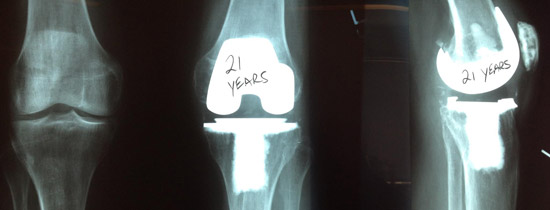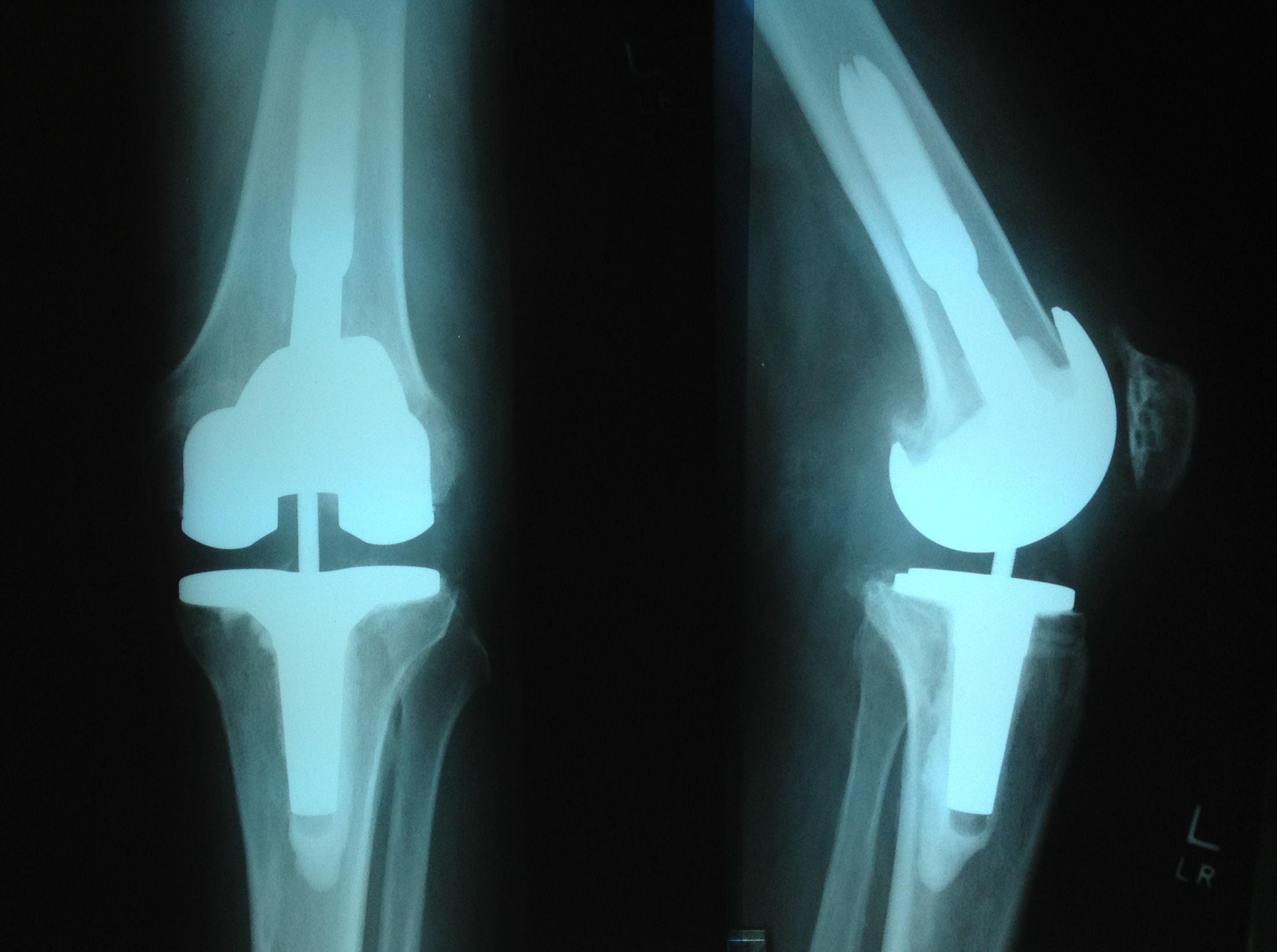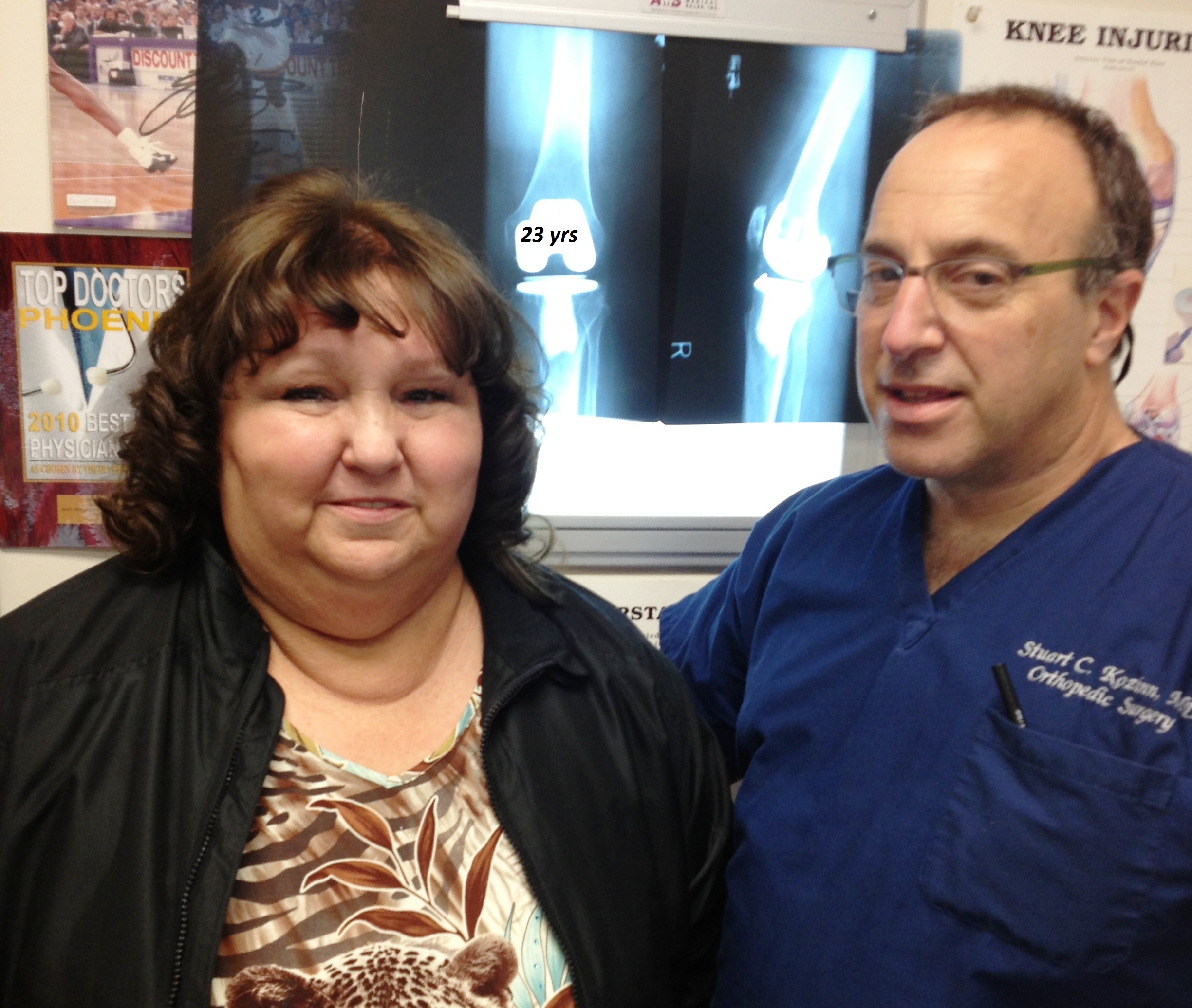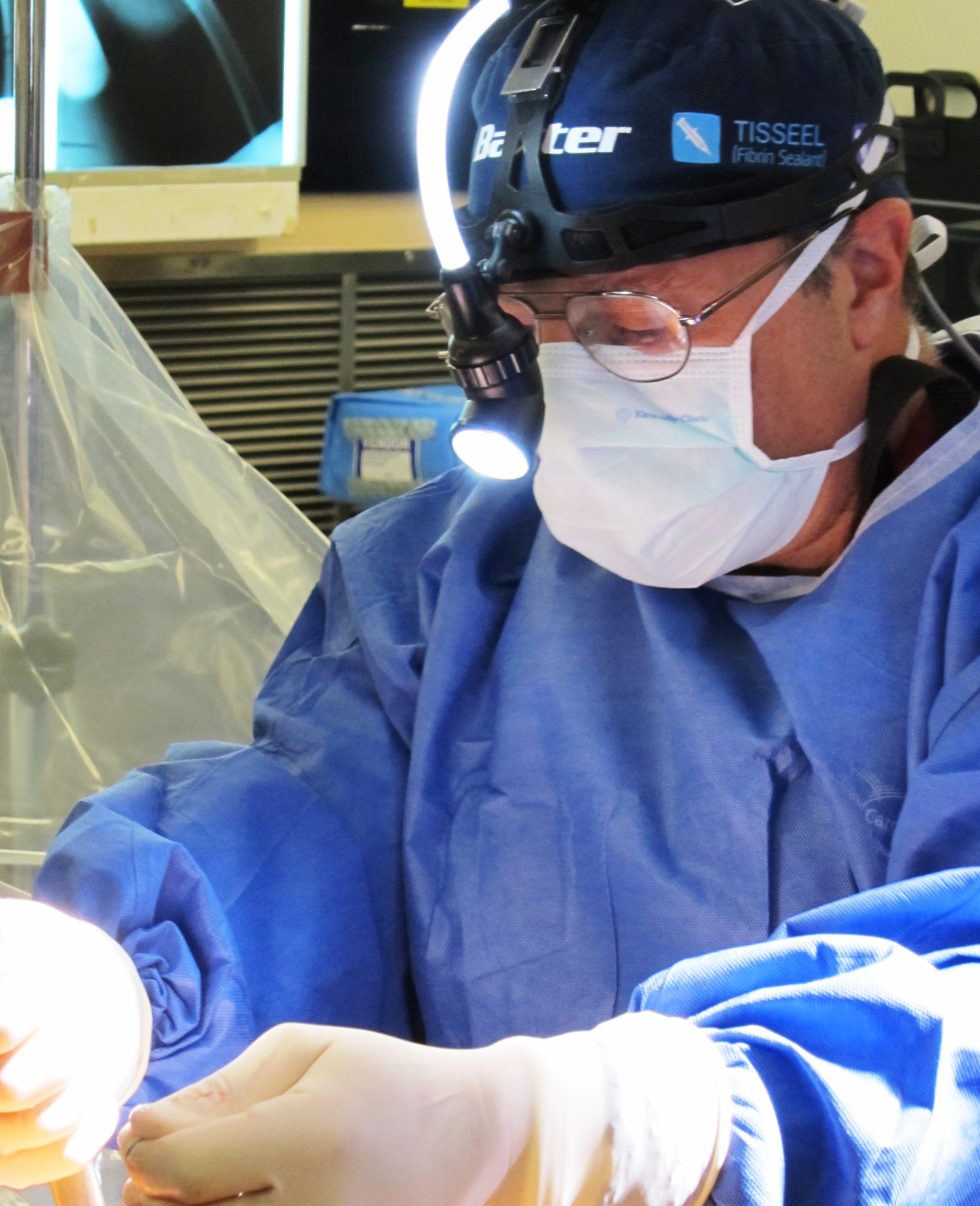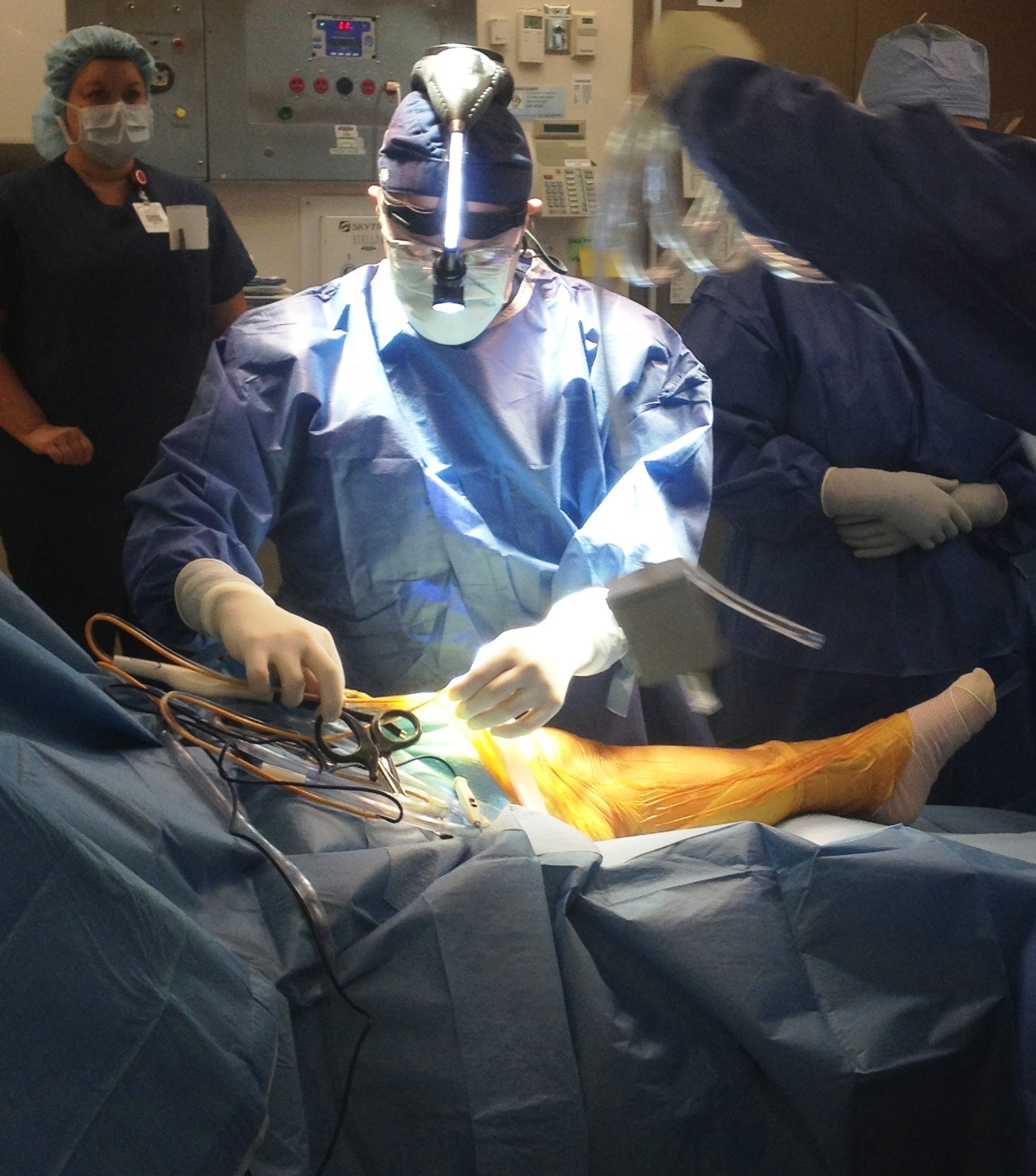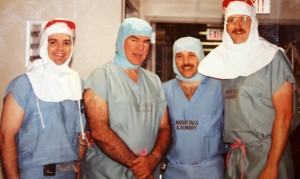Why do some Total Knees Fail?
A wise man once said, all good things must eventually come to an end! Our entire human body will wear down and eventually fail. This is the natural process called aging. So why should any “machine” that we implant in the body not age as well? Total knee replacement is one of the most successful surgical interventions in the history of medicine. Over 95% of total knee replacements are considered a “long term success”. However, long term is usually defined as a 15 to 25 year lifespan. Patients are choosing to have knee replacements at younger and younger ages. So, some of them will eventually fail and need to be re-done. The good news is they can be re-done, and the results of revision total knee replacement are very good!
A total knee is a mechanical device. Like the car you drive, it has parts that will wear down with overuse. Friction occurs between the plastic liner and the metal implants. The knee greatly increases forces on the plastic with activities such as kneeling and squatting, particularly if done while lifting a weight. The forces behind the plastic kneecap can approach 10 times body weight when squatting! For many years, the primary mode of failure was simple wearing out of the polyethylene plastic spacer, much like a tire wears out on a car. Revision surgery might then be as simple as changing “the tire”; i.e. replacing the plastic spacer in a “smallish” operation, rather than changing out the entire device.
I have been doing routine and complex total knee replacements in private practice in Scottsdale, Arizona for over 26 years. I have many patients who still have their original knee replacement done over 20 years ago. Since the average age at implantation was higher 20 years ago ( maybe as high as age 70 back then compared to average age below 63 now! ), many patients died from complications related to old age (natural causes) well before their knees failed. As a general rule of thumb, we advise patients that about 1% of total knees will fail per year of use. Another way to say this is: If there are 100 identical patients in a room with average pre-operative risks and knee deformities, then after 20 years of use, 80 of those patients will still have a happy knee that is functioning well. What happened to the other 20 patients and their knees? There will be some knees that have worn out the plastic over time, some that were damaged in accidents, and some that became “loose” from the bone (cracked cement). We can do a smaller operation years later and just replace the plastic spacer and the knee should get back to its old self.
Another mode of failure is called instability. That occurs if ligaments stretch out over time and cause some looseness in the knee. The knee will hurt or feel unstable during activities.
Patients would always have a “choice” as to whether they would like to re-do the knee. Maybe not so surprisingly, patients often choose to live years with a knee that is not perfect, but still functions well enough to get around without pain medication. Problems that require treatment that are not optional include infections that can rarely occur (1/100 is a typical for infection), or fractures above or below the knee in bone that gets softer as we age. Fixing fractures around a total knee (called periprosthetic fractures) are amongst the most complex operations a joint surgeon will have to do. Revision knee implants are bigger and bulkier than standard knee implants. They make up for lost bone and missing or stretched out ligaments. Lately we have been using “press fit” stem extensions, as it is difficult to get out long stem cemented implants if they need removal for some reason later.
Stretched out ligaments can lead to painful instability problems. Total knees rely on perfect ligament balance to run smoothly. Sometimes one side stretches out more than the other and requires revision to re-balance the ligaments. This is the most common cause of “early” revisions ( within two years). Loosening on the other hand usually presents after 7 to 10 years out.
Stiffness is another reason for revision. For an unknown reason some patients will develop a “frozen knee” due to too much scar tissue build up. A manipulation will be tried first, and this often can break up the scar and get the knee moving again. If that doesn’t work, an open excision of scar and possibly rebalancing of the ligaments might be attempted at revision surgery.
Loosening of the metal implant from the underlying cement can and will eventually occur over time. Cementless total knees have not had a reliable percentage of final fixation to bone, (unlike cementless hip replacements, which are extremely successful.) This is due to a different type of anatomy and forces applied to each. If the implant becomes loose from the bone, it begins to hurt, and swell. A regular Xray will usually diagnose the problem. It is easier to revise a “loose” knee because the components come out very easily during surgery. Old cement fragments are also removed and the bone ends are washed with antibiotic containing water solution. A new device and be cemented in its place. Often in re-do surgery, the implant is bulkier to make up for lost or soft bone.
Revision knees usually do quite well, if they addressed the correct problem. You should try to find a specialist knee surgeon who does over 100 knee replacements a year if you need a revision. They are harder to do. Most qualified knee surgeons have done a total joint Fellowship after their regular orthopedic training. (Dr. Kozinn did his total joint fellowship at Harvard Medical School.
Knee cap or patella problems are another potential source of problems down the line. The patella has a plastic button cemented on in most knees. Some surgeons do not routinely put a button on, but most of us feel it is better to replace it to avoid patella pain problems. An isolated revision of the patella can be done if it comes loose, or if the patella fractures in an accident.
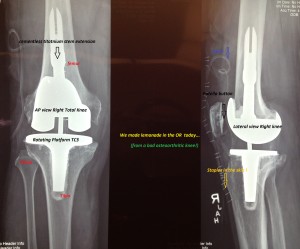
complex total knee : The good news is that total knees that do fail, can be re-done with good results.
The good news, is that in the hands of a well qualified and experienced total knee surgeon, excellent results with a revision knee can happen. I cannot tell you how many of my revision patients tell me their re-do knee is better than the first one they had done years ago ( usually by another surgeon)!




